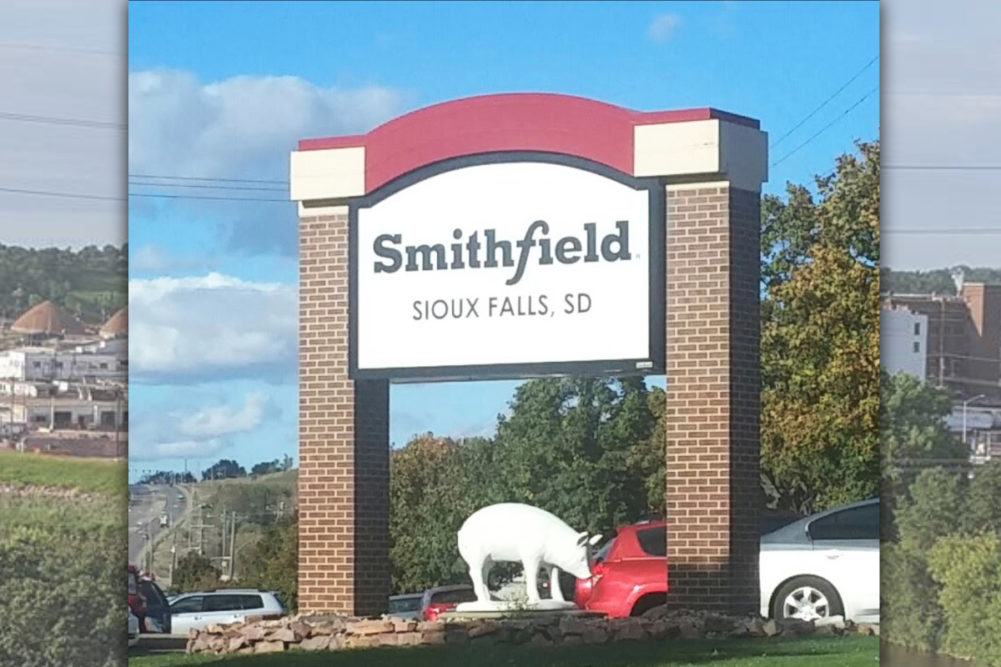SMITHFIELD, VA. — After announcing on April 9 that its Sioux Falls, SD, pork plant would be closed for three days due to employees testing positive for the coronavirus, Smithfield Foods Inc. said on April 12 that the plant would be closed indefinitely, and its president and chief executive officer warned of a possible meat shortage in the weeks ahead.
The company said this plant serves as much as 5% of the US pork market. According to Smithfield, it supplies nearly 130 million servings of food per week, or about 18 million servings per day, and employs 3,700 people. The plant is supplied by 550 farmers. The company said it would continue to compensate its employees for the next two weeks.
“The closure of this facility, combined with a growing list of other protein plants that have shuttered across our industry, is pushing our country perilously close to the edge in terms of our meat supply,” said Kenneth M. Sullivan, president and CEO of Smithfield Foods.” It is impossible to keep our grocery stores stocked if our plants are not running. These facility closures will also have severe, perhaps disastrous, repercussions for many in the supply chain, first and foremost our nation’s livestock farmers. These farmers have nowhere to send their animals.”
In a letter to Smithfield on April 11, South Dakota Governor Kristi Noem and Sioux Falls Mayor Paul TenHaken said that 238 Smithfield employees had cases of the coronavirus (COVID-19). This accounted for 54% of the cases in Minnehaha County, where the majority of Sioux Falls resides.
Smithfield said some operations are planned on April 14 to process products remaining in inventory in preparation for a full shutdown. The company said it would resume operations in Sioux Falls once more direction is received from local, state and federal officials.
“Unfortunately, COVID-19 cases are now ubiquitous across our country," Sullivan continued. "The virus is afflicting communities everywhere. The agriculture and food sectors have not been immune. Numerous plants across the country have COVID-19 positive employees. We have continued to run our facilities for one reason: to sustain our nation’s food supply during this pandemic. We believe it is our obligation to help feed the country, now more than ever. We have a stark choice as a nation: we are either going to produce food or not, even in the face of COVID-19.”


